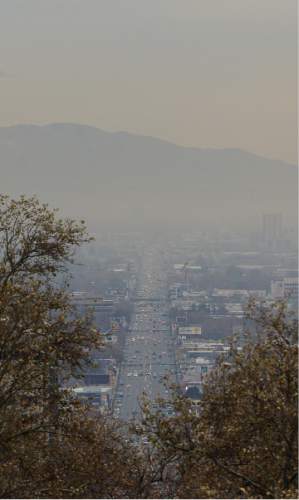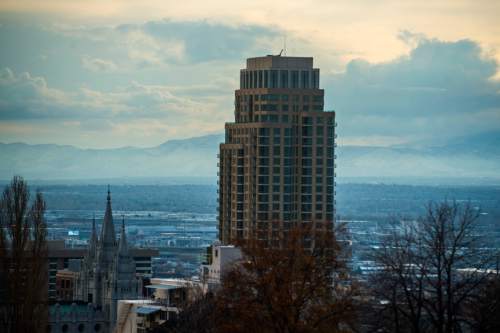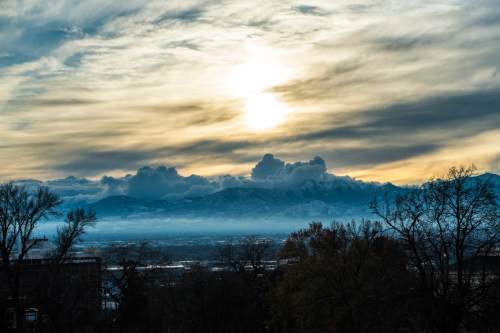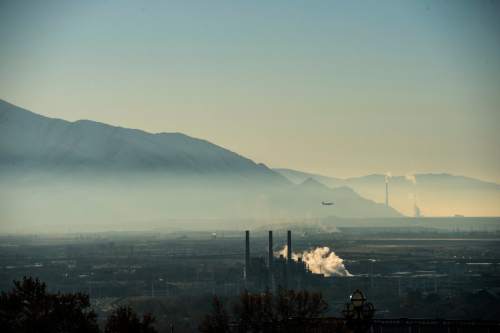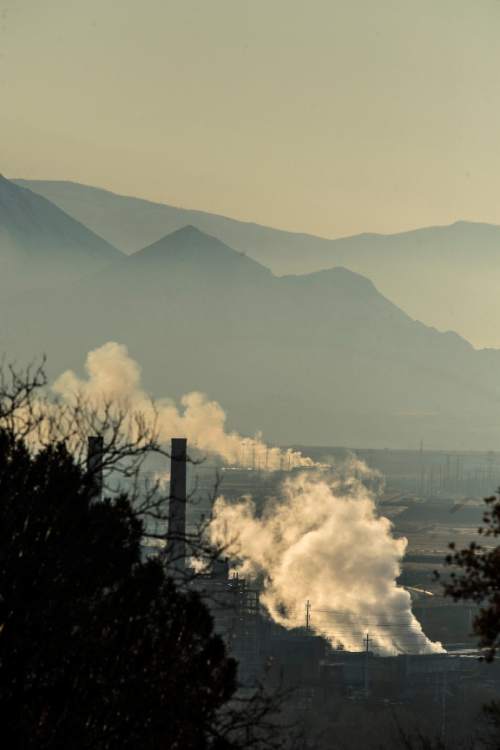This is an archived article that was published on sltrib.com in 2016, and information in the article may be outdated. It is provided only for personal research purposes and may not be reprinted.
At the dawn of a legislative session rife with questions on air policy, most Utahns say state leaders need to do more to regulate emissions from industry and individuals.
A new poll, commissioned by The Salt Lake Tribune and the Hinckley Institute of Politics, found that 58 percent of Utah voters support government action that would restrict emissions and improve air quality. Thirty percent oppose such measures, while 12 percent are uncertain.
That's good news to air quality advocates, but not terribly surprising, said Matt Pacenza, executive director of HEAL Utah.
"If we look at the Legislature over the last three years, we have seen all kinds of air quality measures introduced, and I think the only reason that has happened is because people talk about how they're worried about dirty air," he said. "Air quality has gone from being a fringe issue five to 10 years ago to being about as mainstream an issue as we have in the state right now."
Utah has made progress toward cleaning up its air, said Alan Matheson, director of the state Department of Environmental Quality (DEQ), and is set to continue that trajectory — but there's no "low-hanging fruit left," he said. To make more improvements, he added, the state is going to need the public's cooperation.
For example, Matheson said, air quality along the Wasatch Front could benefit greatly if more residents switched to cleaner vehicles. Making a difference could be as simple as checking the smog rating of prospective vehicles while car shopping, he said, and buying those vehicles rated above a seven.
But public opinion could also help the DEQ in the Legislature. The department is fighting to restore the Air Quality Board's low-pollution-water-heaters rule, which would require that water heaters sold in Utah to meet certain emissions standards. Action from state lawmakers will be needed to save the once-uncontested rule from a legislative sunset list, where it was placed late last year after the Utah Home Builders Association questioned whether the state board could legally pass a rule regulating household appliances.
Additionally, the department is pushing for a $2 million budget for an upgraded air monitoring system and research, and for updated building codes, which regulators and activists alike believe could greatly reduce household emissions. At the same time, the DEQ is fighting a separate initiative that would decrease the frequency with which building codes are reviewed in Utah.
While the public's support is welcome, Bryce Bird, the director of the DEQ's Division of Air Quality, said it doesn't guarantee that any of these initiatives will move forward.
"Often the loudest voices get heard first," he said. "It only takes a few upset people calling about something to kill it."
Pacenza feels hopeful about the session, but he too believes it will take more than public opinion to pass key air quality measures. Given opposition from powerful interest groups, he said, the public would need to mobilize in a widespread, organized effort to influence the legislature.
"I do think it's possible to overcome [interest group influence]," he said. "but the legislature needs to move beyond refusing to act if there's opposition from one or two powerful sectors."
Twitter: @EmaPen


